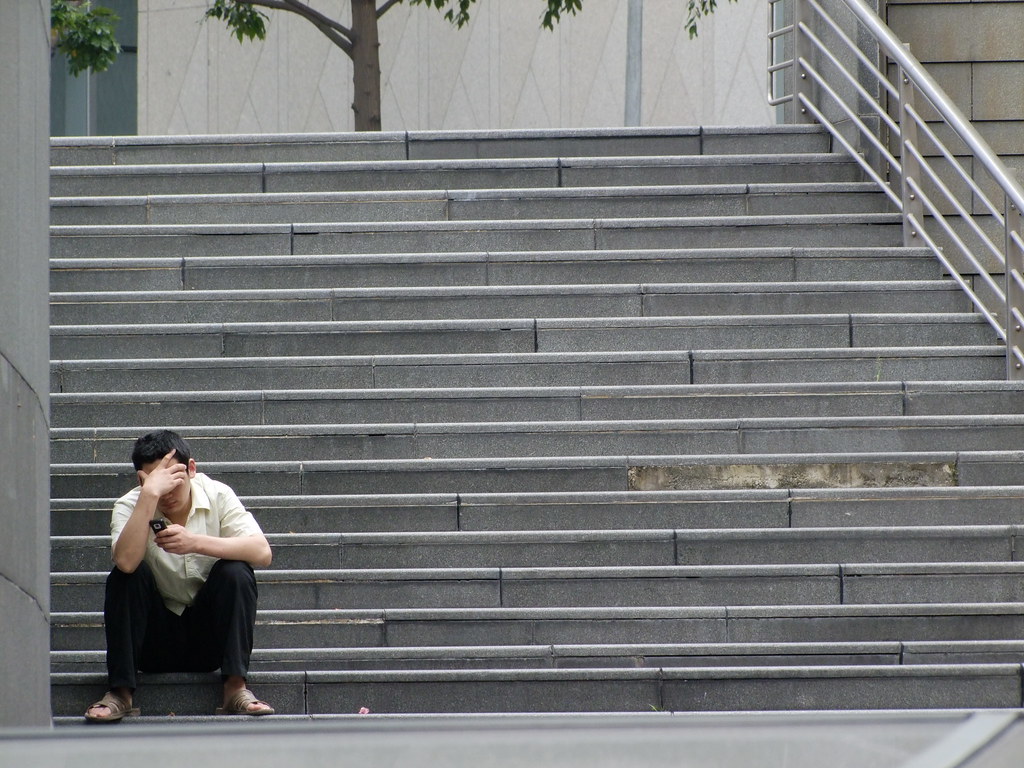Mental health continues to be a seriously overlooked issue among college students—which is why I’m so glad that Spoon launched Healthier to raise greater awareness about what it truly means to be healthy. To tell you the truth, I’ve been struggling with my own mental health for some time. Just a little less than two years ago, I had published an article about my personal body image issues.
While I mentioned in my previous article that my weight loss had caused a lot of stress for me during college, I hadn’t discussed any of the other issues that were also significantly impacting my mental health.
What Exactly Was Wrong with Me?

amenclinics_photos on Flickr
First, I slept terribly. I would knock out early in bed, wake up in the middle of the night, and take frequent naps throughout the day to combat my excessive daytime sleepiness. My mood and energy levels constantly fluctuated. While I would be jumping off the walls one minute, I would be down in the dumps the next second.
My stress and anxiety levels skyrocketed so high that I no longer enjoyed the activities I typically loved (for instance, running outside along the Schuylkill and writing for Spoon). Lastly, I felt disappointed and frustrated with myself, because I was always comparing myself to others and wondering if I was accomplishing “enough” as a Penn student.
How I Grappled with Opening Up and Getting Help

AIM Neutron (On a break) on Flickr
It took a lot of courage for me to open up to anyone besides my dad about my mental health, because I thought it wasn’t important. I also believed that as an Ivy League student it was unacceptable to admit that I was mentally unhealthy. However, when I finally told one of my friends Melissa, she encouraged me to meet with a counselor at Penn CAPS (Counseling and Psychological Services) for some help.
I wasn’t sure whether talking to a stranger would necessarily be helpful, so I kept making excuses for myself not to schedule an appointment. It wasn’t until this semester, when I felt I could no longer control my anxiety, that I finally gave in.
Dealing with Penn CAPS

chrisinphilly5448 on Flickr
The initial process of contacting the Penn CAPS office itself could not have been more tedious. More often than not, I had called when all the lines were busy. Also, when someone from the office finally returned my calls, I was too busy in class to respond. Luckily, I had finally made an appointment to meet with a psychologist over spring break for an initial consultation.
I was nervous, because I was told that I would only be given 15 minutes to discuss everything that was on my mind. But I figured that after having tried so hard to contact CAPS, the least I could do was to keep my appointment.
What the Actual Appointment Was Like

matusfi on Flickr
To my surprise, I didn’t have to wait long in the waiting room before the psychologist introduced himself to me as Dave. Overall, Dave was very respectful about maintaining confidentiality and keeping his office a quiet and comfortable space to discuss my mental health problems.
He started with questions about my family and personal health history, current relationships I had with friends and family, and experiences with trauma or abuse. Then, he moved onto why I had decided to come into the CAPS office, and asked me more specifically about the problems I wanted to address during our meeting.
Afterwards, Dave recommended seeing my doctor to determine any underlying medical causes for my sleep and energy level changes. He also promised to contact me within the next few days for a follow-up appointment. In the end, I had spent an entire hour in his office.
Final Thoughts

Overall, seeing a CAPS counselor was one of the best decisions I’ve made this semester. One thing I loved about meeting Dave was that I wasn’t pressured or judged when I was sharing about my mental health. Instead, Dave used therapeutic communication skills to validate my feelings.
Another thing I appreciated was that Dave didn’t rush me through his initial assessment. Rather, he gave me plenty of time to explore my own thoughts and provide more clarity about my current mental health problems. Most importantly, I felt that speaking openly to a mental health professional helped me gain more insight about my mental health.
On the other hand, there were a few things that could have improved my experience at CAPS. For one, it was difficult to schedule an initial appointment, even during spring break, when most students have already left campus. While I don’t regret keeping my appointment with Dave, I didn’t realize how long I needed to wait for a follow-up.
According to Dave, the turn-around could take up to several weeks, and he didn’t mention any referral services I could use in the meantime. Additionally, there were one or two questions that made me feel uncomfortable, since they raised concern for other problems, such as a possible eating disorder, that I hadn’t originally presented.
Nevertheless, I can’t wait to see what my next appointment at CAPS will bring. And if there’s one thing I want you to take away from this article, it’s that you should not be afraid to address your mental health. Use your college resources, and be open to accepting professional help.



